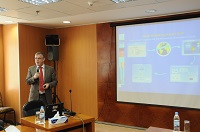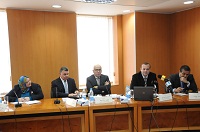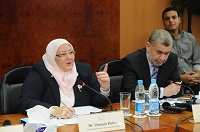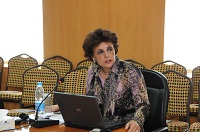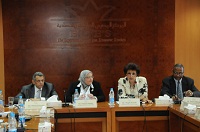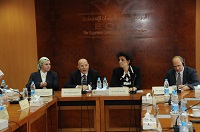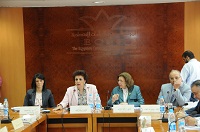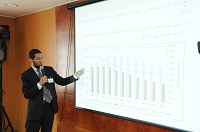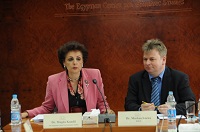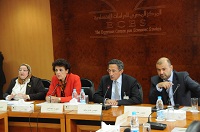Not only is the theme highly relevant for assessing progress within the current MDG framework, but it also has the potential to inform discussions about the post-2015 development framework in which urbanization will be a major factor. The report calls for complementary rural-urban development policies and actions by governments to facilitate a healthy move toward […]
This roundtable discussion highlighted the main findings of ECES research regarding the micro and macro factors behind modest R&D performance in Egypt’s pharmaceutical firms. At the micro level, an R&D strategy is evidently lacking, with firms leaning heavily towards development as opposed to basic or applied research. Moreover, there is virtually no collaboration either with […]
This roundtable focused on the inclusive growth model and explore ways to achieve social justice via broader participation in production and economic activity. Specifically, it aimed to contribute to ongoing debate about ways of increasing the job content of growth by addressing industrial policies, reforming education and ensuring broader support for SMEs to maximize the […]
This roundtable discussion introduced the key findings of the Economic Report on Africa 2012 “Unleashing Africa’s Potential as a New Pole of Global Growth”. On this occasion, the discussion focused on the central challenges African countries must address for the continent to unleash its potential as a pole of global growth. Among other key goals, […]
This roundtable discussion focuses on the impact of institutional quality on the business environment in Egypt. The aim is to highlight the impact of long-term rigidity that has long constrained the potential of the economy and the implications of recent developments post the Revolution towards prioritizing the agenda of structural and institutional reforms that would […]
This roundtable discussion presented the findings of the research team. The results indicated that many small enterprises find it very difficult to innovate towards growing into the segment of medium size enterprises. Nevertheless, a considerable number of companies was able to go through a process of upgrading even at times of difficulty such as the […]

